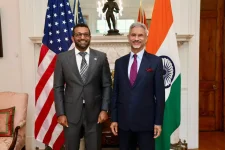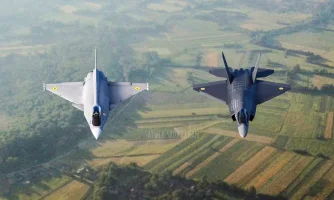- Views: 2K
- Replies: 7

A potential diplomatic crisis was narrowly averted after Indian intelligence agencies intervened to prevent the arrest of a former high-ranking Research and Analysis Wing (R&AW) official on US soil, according to a report in The Sunday Guardian.
The US Federal Bureau of Investigation (FBI) and Central Intelligence Agency (CIA) were allegedly poised to detain the ex-official during a planned family trip to the United States. However, Indian intelligence received a tip-off, leading to the cancellation of the trip and averting a possible diplomatic crisis.
While the identity of the official remains unconfirmed, speculation is rife that it could be Samant Goel, the former chief of R&AW until 2023. Goel is a prominent figure in India's intelligence community, known for his role in counterterrorism operations, particularly against Khalistani separatist movements.
The Sunday Guardian, citing US media reports and sources, claims that the US government suspects Goel's involvement in an alleged plot to assassinate Gurpatwant Singh Pannun, a leader of the banned Sikhs for Justice (SFJ) organization. Pannun, designated a terrorist by India for his pro-Khalistan activities, enjoys a degree of protection in the US due to his connections within the American legal system, creating a point of contention between the two countries.
This incident evokes memories of the 2013 Devyani Khobragade affair, where the then Deputy Consul General of India in New York was arrested on charges of visa fraud. The arrest and subsequent strip search of Khobragade triggered a major diplomatic row between India and the US, with India retaliating by downgrading US diplomatic privileges.
The potential arrest of a high-ranking former R&AW official, especially someone of Goel's stature, could have had similar repercussions, further escalating tensions between New Delhi and Washington. The Sunday Guardian report suggests that the FBI and CIA were prepared for another high-profile arrest that could have cornered India and sparked a diplomatic uproar.
The Khalistani issue has become a growing point of contention between India and Western countries, particularly with the rise of social media propaganda and diaspora activism. India has expressed frustration over what it perceives as a lack of cooperation from countries like the US and Canada in addressing this issue.
The Sunday Guardian report also highlights concerns within India's intelligence community regarding recent actions by the US and Canada in the Pannun case, including the public disclosure of alleged closed-door meetings and the issuance of arrest warrants against Indian officials. These actions have been described as "foolish" and potentially detrimental to long-term relations.
Adding to the complexity, Canada recently named Indian diplomats, including High Commissioner Sanjay Verma, as "persons of interest" in the investigation into the killing of Khalistani terrorist Hardeep Singh Nijjar. In response, India withdrew its high commissioner and other diplomats, citing concerns for their safety in an "atmosphere of extremism and violence."
The Canadian authorities had requested India to waive diplomatic immunity for six of its personnel for questioning related to "violent incidents targeting members of the South Asian community." India refused, leading to the expulsion of the six diplomats.
This series of events underscores the escalating tensions and complexities surrounding the Khalistani issue and its impact on India's relations with the US and Canada. The potential arrest of the former R&AW chief, thwarted at the last minute, highlights the delicate balance between counterterrorism efforts and diplomatic relations in an increasingly interconnected world.





